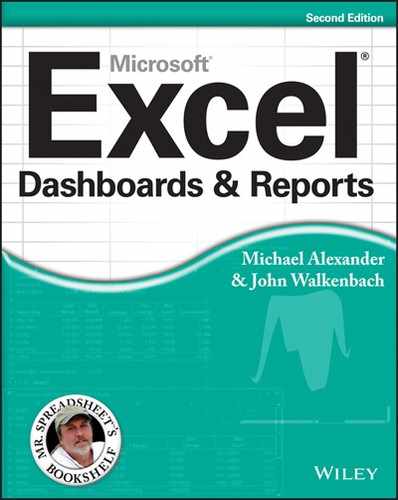Book Description
Learn to use Excel dashboards and reports to better conceptualize data
Updated for all the latest features and capabilities of Excel 2013, this go-to resource provides you with in-depth coverage of the individual functions and tools that can be used to create compelling Excel reports. Veteran author Michael Alexander walks you through the most effective ways to present and report data. Featuring a comprehensive review of a wide array of technical and analytical concepts, this essential guide helps you go from reporting data with simple tables full of dull numbers to presenting key information through the use of high-impact, meaningful reports and dashboards that will wow management both visually and substantively.
Details how to analyze large amounts of data and report the results in a way that is both visually attractive and effective
Describes how to use different perspectives to achieve better visibility into data, as well as how to slice data into various views on the fly
Shows how to automate redundant reporting and analysis processes
Walks you through creating impressive dashboards, eye-catching visualizations, and real-world What-If analyses
Excel Dashboards and Reports, Second Edition is part technical manual, part analytical guidebook, and exactly what you need to become your organization's dashboard dynamo!
